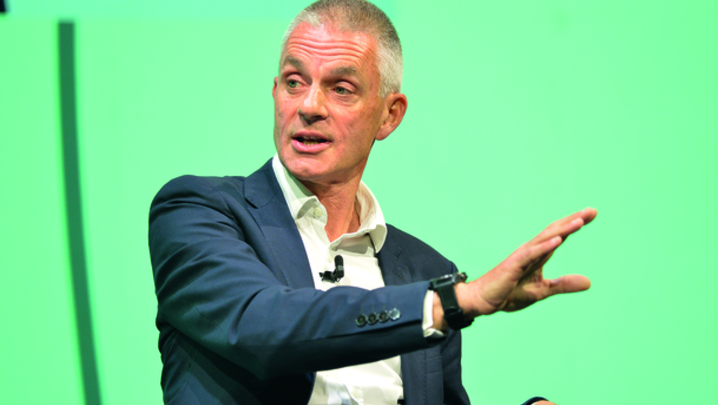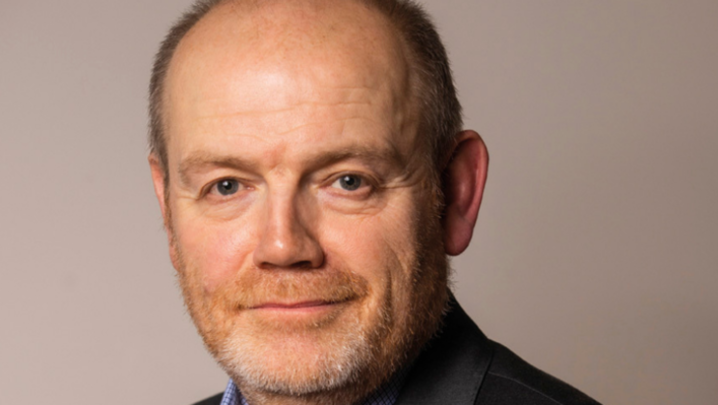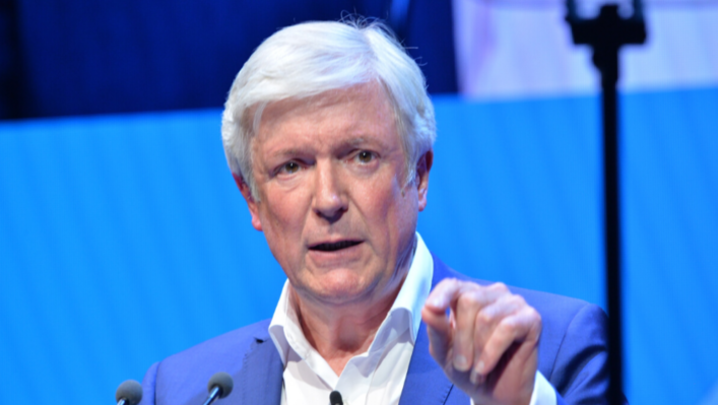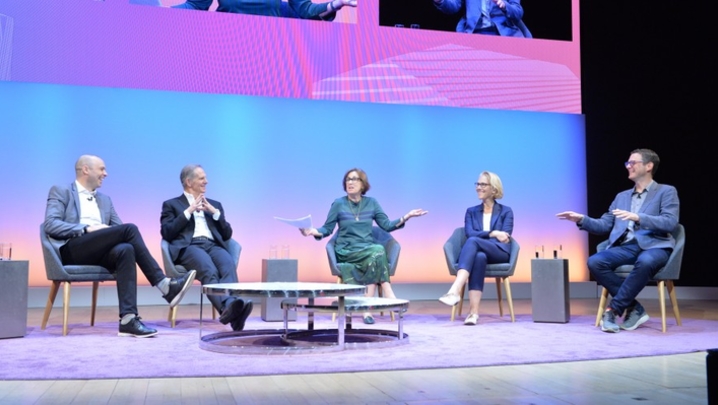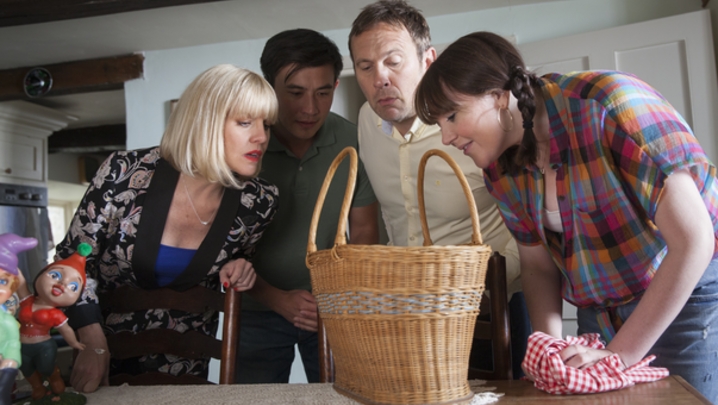As more consolidation looms in the independent sector, our panel discusses a rapidly evolving market
Financial and cultural value were discussed in an illuminating session that offered insights from what panel chair, The Telegraph’s audio director Kamal Ahmed, called “three titans in the area”.
Jane Featherstone, co-founder and CCO of Sister, commented on the current climate affecting the valuation of companies. “We’re in a state of change,” she said. “Budgets have risen, largely driven by getting movie talent in above the line,” she said. The feeling was that what was wanted wasn’t really TV any more, but long movies. This, she said, “pushed all the costs up”.
The past few months had been particularly difficult for indies, said Featherstone: “Some have closed down and people are losing their jobs. So, it’s hard to sit here and talk about value, but we have to find the green shoots. Producers like me are trying to navigate how we have a mixed ecology.
“The market’s evolving. The risks are that we lose storytelling at the edges, that we’re unable to tell the stories regionally and… give voice to those people who need to tell their stories.”
Ahmed said that Stephen Lambert, founder of Studio Lambert, “has spoken about a kind of top tier of maybe 12 or so big players” in future, with the rest of the market comprised of smaller-scale companies. Did Featherstone think the market would evolve in this way?
“Any business you value, it’s about the talent involved,” she said. “Those companies that have bandwidth, strength [and] investment will be able to survive these storms more easily. There’s no question about it. But then it’s our responsibility to partner with those newer companies… we have to actively protect that and make sure that ecosystem survives.”
Harry Hampson, JP Morgan’s Global Chairman, EMEA, was an advisor on the sale of All3Media to RedBird IMI. He told the audience: “I’m aware of how difficult things are at the moment but I have to say, in general, that markets are becoming more optimistic.
“So, although I’m very sensitive to the current situation, I would be optimistic if I were all of you, because what we found with All3 was there was a lot of interest… [there were] 15 parties who were serious. Not just Americans; a lot of international parties… were interested.”
“All of you are involved in an industry that is incredibly dynamic and still incredibly attractive to investors”
He said: “It’s like selling your home. You’ve got to get numerous buyers interested. And we were able, with the team at All3, to create a very competitive auction, because, fundamentally, there was a lot of attraction to the business and in being invested in this sector.
“All of you are involved in an industry that is incredibly dynamic and still incredibly attractive to investors.”
Consolidation was a way of creating a sustainable business because of economies of scale, said Hampson. He predicted “fewer linear broadcasters in the future”, and said it was likely that streaming services would “rationalise, in some ways, in terms of who they’re targeting”. He also foresaw “further moves in consolidation in the production industry in the… next 12 months”.
Richard Sharp, a partner at investment house SW7 and a former BBC Chair, pointed to Netflix and its sky-high share price, noting “how much wealth has been created there”. He said: “The good news… if you’re thinking strategically, is more money is going to come into the industry globally. The question for all of you is: ‘What is the ecosystem that capitalises on the UK’s competitive advantage and will continue to ensure that we don’t get hollowed out in terms of our capabilities?’”
The sector had some advantages, he noted, including artificial intelligence, the English language and the spending power of the BBC. But while he was optimistic, Sharp warned that UK plc as a whole faced risks. “Will we be hollowed out or will we have enterprise value here?” he asked.
Where do you start when you are valuing a business, Ahmed asked Hampson. The banker replied that it is similar to any other company: “You look at the future rather than the past. The past is evidence of what you could potentially create in the future, but it’s all about your future plans and how reliable and predictable it is.
“Businesses with IP are going to be valued more highly than those who are just doing it at a margin”
“One of the things about IP ownership is that it obviously underpins the future because you own the rights and you know that those rights are likely to continue to yield value in the years ahead.”
Hampson went on: “So those businesses with IP, typically in production, are going to be valued more highly than those who are just doing it at a margin.”
Breadth of customer base is another factor - so the company is not reliant on just a couple of suppliers - plus talent. He revealed that All3 and Shine, which he also sold, got about the same multiple, “roughly 12 times EBITDA (earnings before interest, taxes, depreciation and amortisation).
“But like selling anything, it’s to do with the competition, and those people who are actually in the auction room at the end.”
Hampson was also involved in the previous government’s attempt to sell Channel 4: “I was very optimistic that we could not only achieve a good price for the government but also impose on the buyers conditions that would have allowed many of the things to survive that Channel 4, and all of you, hold dear.”
He was asked if BBC Studios could be valued and sold. “I don’t think it’s too difficult. Clearly there’s a relationship with the BBC that would need to be carefully set out… I believe that [it] could be sold. I’m not saying whether it should be sold [but] it always strikes me as odd that a publicly funded vehicle is competing in a commercial market.”
Session Eight: ‘How do we value our industry?’ Kamal Ahmed, Director of Audio, The Telegraph, interviewed Jane Featherstone, Co-Founder and CCO, Sister, Harry Hampson, Global Chairman – Investment Banking/Corporate & Investment Bank EMEA, JP Morgan, and Richard Sharp, Partner, SW7 and former Chair, BBC. The producer was Helen Scott. Report by Tara Conlan.


